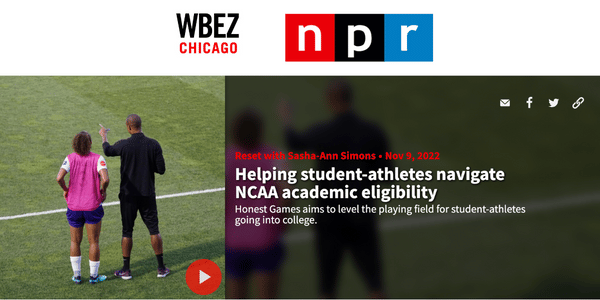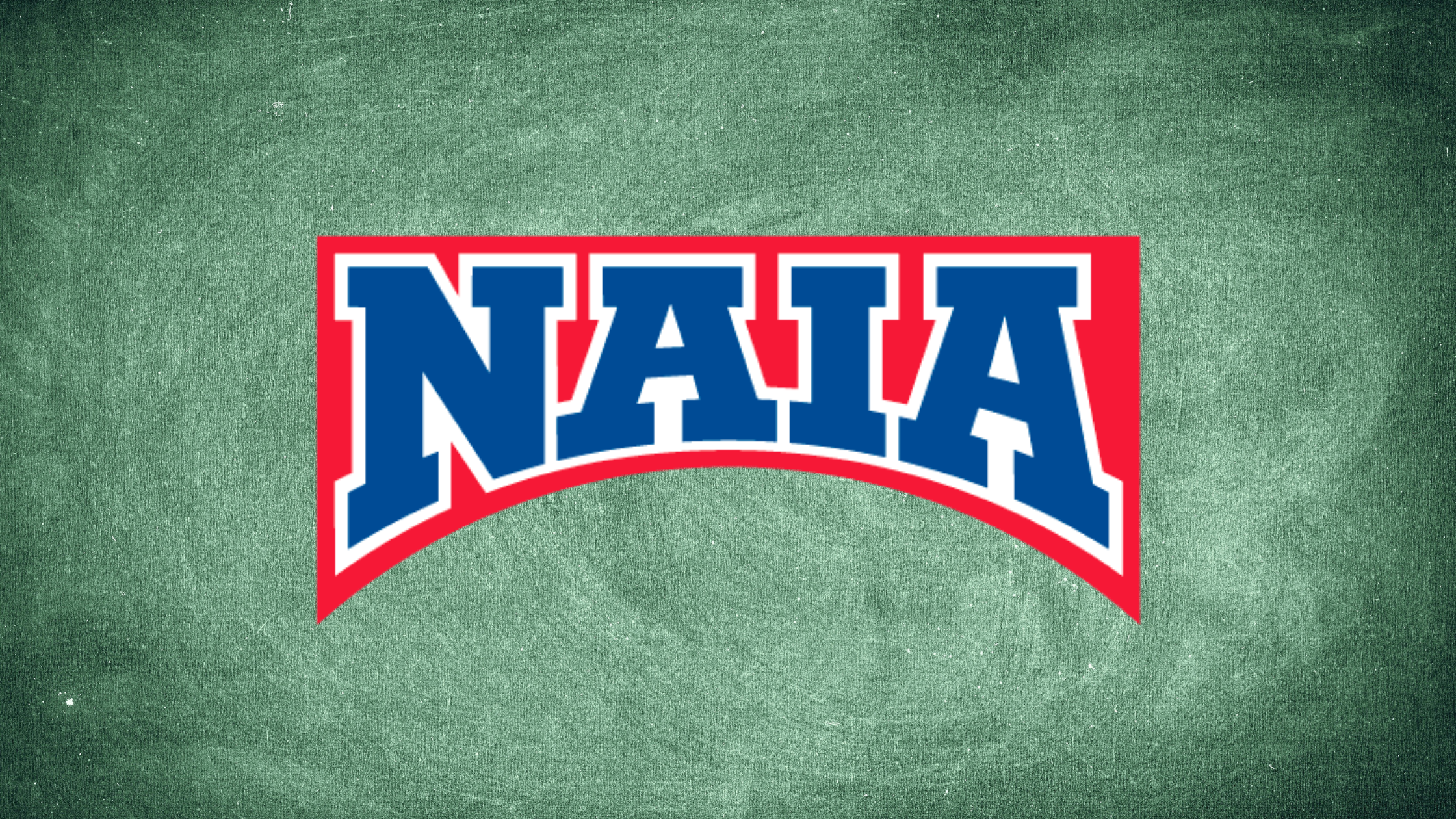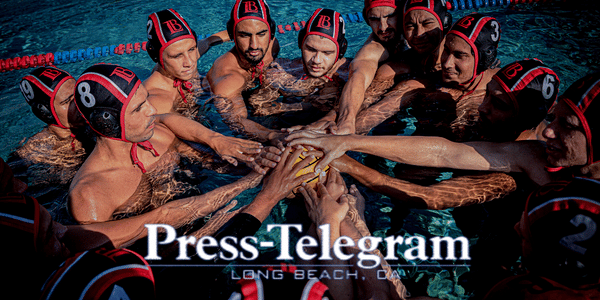Empowering Student-Athletes with an NCAA Education Impacting Disability (EID)
Published on Dec 16, 2025

For student-athletes with disabilities, the NCAA offers an opportunity to apply for an Education Impacting Disability (EID) designation. This designation acknowledges the impact of a student-athlete’s disability and provides accommodations to support academic success while maintaining eligibility to compete in NCAA athletics.
What is an NCAA Education Impacting Disability (EID)?
In order to meet academic eligibility requirements, the NCAA considers an Education Impacting Disability (EID) as a current impairment that significantly affects a student’s academic performance and requires accommodations. Common types of EIDs include:
- Learning disabilities or disorders
- Attention deficit hyperactivity disorder (ADHD)
- Mental health disorders
- Medical conditions
- Deaf or hard of hearing
- Autism spectrum disorder
These are just a few examples of the types of disabilities that fall under the EID category. It’s important to note that each individual’s situation is unique, and accommodations are tailored to their specific needs.
What are the Impacts of an NCAA EID on Academic Eligibility?
When a student-athlete is granted an EID, it means that their disability significantly impacts their educational experience and is a formal recognition by the NCAA that the student-athlete requires specific accommodations to ensure equal access to educational opportunities.
The NCAA EID designation does not compromise the student-athlete’s eligibility to participate in NCAA athletics. It is specifically designed to ensure that student-athletes with disabilities have equal opportunities to compete while receiving the necessary academic support.
The accommodations provided through the EID are tailored to meet the unique needs of each student-athlete. They can include a range of support services and adjustments, such as extended time for exams, access to assistive technology, note-taking assistance, alternative formats for instructional materials, or specialized tutoring.
Do Standards For NCAA Initial Eligibility Change For Students With EIDs?
No. All student-athletes must meet the same standards in order to compete in NCAA Division I (DI) or Division II (DII) athletics.
- For DI only, a student with an EID may access the following accommodations: A student may take up to three additional NCAA-approved Core Courses after graduating high school but before enrolling full-time at a DI school — as long as you graduate from high school in eight consecutive semesters after starting ninth grade.
- A student with an EID must graduate “on time” [a student must graduate from high school with their class within four consecutive academic years (eight semesters) from the start of grade nine] in order to access the above accommodation.
- For DII only, a student with an EID may access the following accommodation: A student may take an unlimited number of core courses after starting ninth grade but before enrolling full-time at a DII school.
- For both DI and DII, a student with an EID may access the following accommodations: Use NCAA-approved courses for students with EIDs, as designated on the high school’s list of NCAA-approved core courses.
How to Apply for an NCAA EID
Requesting an NCAA EID designation is a crucial step for student-athletes with disabilities seeking accommodations and support. By following this step-by-step guide, you can navigate the process successfully and access the resources needed to thrive academically and athletically. Remember to stay proactive, communicate your needs, and utilize the support available to you. To document your EID with the Eligibility Center, you must submit the following materials:
- A complete NCAA EID cover sheet.
- Your NCAA ID, high school graduation year, permanent address, and phone number.
- You must complete your NCAA Eligibility Center Registration to obtain your NCAA ID number.
- Current, signed documentation of your diagnosis (including test data) and/or recommendations from the treating professional (e.g., medical doctor, clinical psychologist, or other qualified individual).
- Current copy of your Individualized Education Plan or 504 Plan. If your high school did not provide an IEP or 504 Plan, the high school must submit documentation describing the available accommodations or an explanation of why accommodations were not provided.
- A signed Buckley Statement form, which allows certain individuals to review your EID information and speak on your behalf to the NCAA. A parent or guardian who would like to discuss your EID request with the NCAA must be listed on the Buckley Statement.
Before submitting, ensure that all information is complete and email all requested documents including the EID Services Application and Buckley Statement to [email protected]. You may also send via fax (317-968-5100 ) or physically mail the information to the NCAA Eligibility Center to:
NCAA Eligibility Center
Disability Services
P.O. Box 7110
Indianapolis, Indiana 46207-7110
If approved, you will be notified in writing and provided with additional information about available accommodations.
Common Questions about the NCAA EID Designation
Can a student with a diagnosed disability use courses designated for students with EIDs to meet NCAA core-course requirements?
Students who have submitted their disability documentation for review and have been identified as having an EID may use courses for students with EIDs for the purpose of meeting NCAA core-course requirements. Courses for students with EIDs must appear on the high school’s list of NCAA-approved core courses for the course to be included in the student’s final academic certification.
Why do students submit for an NCAA EID?
Usually, students don’t submit an NCAA EID unless they need to take more than 1 unit (2 semesters) of NCAA courses after high school graduation because they are most likely short NCAA Credits or their NCAA Core GPA is not a qualifying GPA. This usually applies to student-athletes pursuing NCAA DI programs.
Do colleges have access to my EID information during the recruiting process?
Information submitted to the NCAA about your EID is only released to colleges if the student-athlete makes a specific written request.
If I have a documented IEP that is approved at my high school, do I have to go through this approval process with the NCAA?
Yes. The NCAA will not grant an accommodation during the Initial Eligibility Review Process unless you have submitted the proper documentation to the NCAA and had the NCAA EC approve your EID.
Is there someone at school who can help me with this documentation?
Generally, your school counselor and parent/guardian can support in getting the documentation needed. Share this information with them to get started.
Do you need more help understanding the NCAA EID process? Honest Game experts are here to help student-athletes and their families navigate the NCAA system effectively to help them achieve their goals. Schedule a time to meet virtually with our experts.

Having served on the NCAA Eligibility Center High School Advisory Board and as the College Bound Student-Athlete Advisor at Evanston Township High School (Evanston, IL), Joyce has advised more than 2,000 high school student-athletes and families on academic eligibility and recruiting.



